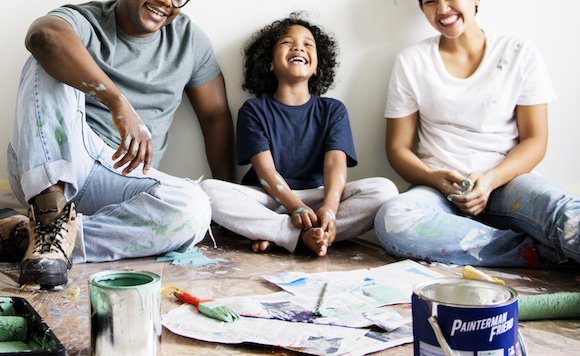Raising Emotionally Intelligent Children (Help Guide Org)
Parents who raise emotionally intelligent kids teach this important skill —here’s how (CNBC)
One of our children’s deepest needs is to feel heard, and by listening carefully and expressing empathy, parents can help fill this need. More importantly, research has found that if someone feels empathy, even if it’s just from watching a touching video, it can make them feel more connected to — and generous toward — others. In other words, practicing empathy with your kids can help them grow up to be emotionally intelligent adults.
Raise Your Child to Be an Optimist (Aha!Parenting)
It's easy to feel frightened and overwhelmed in today's world. But it IS possible, even in scary times, to be guided by the values that matter most to us, including the commitment to provide a calm, loving home for our children. To do that, we need a sense of optimism -- the conviction that things will work out, and that what we do can have a positive impact.
Yes, you should talk to your kids about Ukraine. Psychologists explain how (CNN & verywellmind)
With the many weeks of war in Ukraine following Russia's invasion, kids may see disturbing images and videos on TV and social media or hear about the possibility of World War III. “It’s a brand-new thing that today’s parents have never had to really explain to their kids in terms of a war that is so in their face”. With so many images of violence and so few answers, your kids likely are aware of the fighting even if it's far away - and they can be terrified or at the very least, extremely worried or troubled. As you engage in conversation about Ukraine, consider the following.
8 Vital Reasons to Teach Your Child About Feelings (Nature & Thrive)
How to help kids cope with pandemic's psychological toll (USA Today)
As the pandemic stretches out long and wide, kids across the board are feeling the same stressors as adults - yet many don’t have the life experience to feel confident they can get through it or the proper instruction for proven coping techniques (like mindfulness!). The endless ‘doom cycle’ on the news only exacerbates this situation, while kids wait for school life and extracurriculars to kick back in (providing needed relief from being at home with harried, worried family members). Adults can help, by staying aware and being proactive with interventions, open communication and consistently modelling healthy behaviours and strategies.
Our Children Are Suffering. We Must Help Them (The New York Times)
COVID-19 has dealt heavy blows to young people’s social, emotional and behavioral well-being. Many kids and adolescents have struggled academically with school closures, limited access to teachers and coaches, the frustrations of remote learning. During lockdowns and quarantines, some have had to face the death of loved ones — without the chance to hug them goodbye. For many, the pandemic has also brought intra-familial and/or economic strife. And kids are feeling sad, angry and depressed over having missed graduations and other important events. Our kids mental health (and our own) must now take precedent. The first step is awareness.










